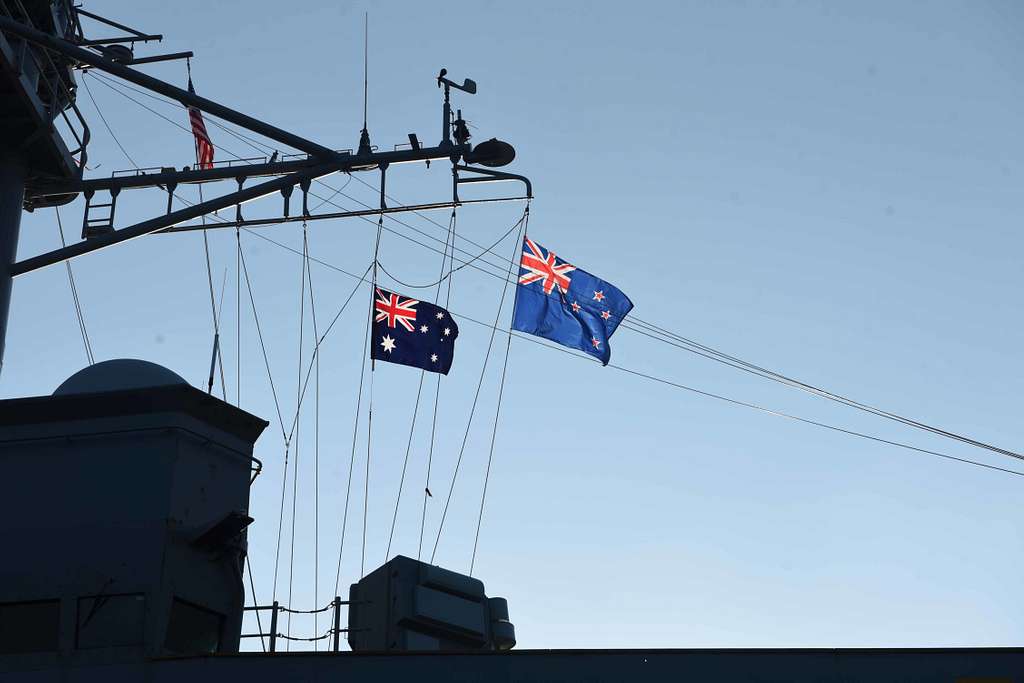Middle power economies need to establish iterative and agile perspectives for protecting their strategic and economic national security interests. The consequences of the emerging rivalries between a MAGA America and an emerging consolidation of a Russian-Indian-Chinese Troika must not be underestimated.
Geopolitical transformations often occur with unexpected suddenness and cataclysmic consequences. And while they may appear predictable, history is littered with examples of misplaced optimism contributing to willful blindness and catastrophic consequences.
The end of the post-Cold War American ‘unipolar moment’ is being marked by a rise of authoritarianism, scepticism of Western socio-economic institutions, and waning faith in free-market capitalism. The past decade has seen liberal democracies such as Hungary, India, Poland, and Türkiye become increasingly authoritarian.
2024, according to V-Dem (Democracy Report 2025), marked the first time since 2002 that autocracies outnumbered democracies—a stark reminder of the decline of democracy. Nearly three out of four people in the world’s population now live in an autocracy, the highest since 1978.
The weakening of democracy in America risks exacerbating this decline; a concern validated by more than 500 political scientists who believe the United States is sliding rapidly from liberal democracy toward some form of authoritarianism.
Trumpism is a metamorphosis of Ronald Reagan’s America from a “shining city upon the hill” to one that rejects the value of a rules-based order. Trump’s strategic policies prioritise values he believes ought to have universal application, even where their promotion undermines the protection of liberal norms, the constitution to which he swore the oath of office, and principles of international law. Trumpism is a rejection of the ideals, liberal norms, and international institutions that helped build an inclusive, affirmative global order following the end of WWII.
Make America Great Again (MAGA), a term initially used by Ronald Reagan, envisioned an America starkly different from the one envisioned by Donald Trump, who shares more in common with Viktor Orbán, Recep Erdoğan, and Narendra Modi. Trump has abandoned America’s strategic and moral obligations in favour of coercive transactional policy.
These challenges are compounded by American retrenchment from its foreign commitments while China is resolute on replacing the United States and the West as the world’s leading military, technological and economic power.
America’s withdrawal from the World Health Organization (WHO), the Paris Accord, UN Human Rights Council (UNHRC), the UN Educational, Scientific, and Cultural Organization (UNESCO); and the UN Relief and Works Agency for Palestine Refugees in the Near East (UNRWA) not only undermines the guiding principles of the rule of law and legitimacy of liberal democracy. This retraction imparts momentum to China’s authoritarian agenda of dividing, weakening and discrediting Western interests while promoting Xi Jinping’s “community of common destiny”, a term adopted during the 18th National Congress of the CCP.
Furthermore, America’s retrenchment from Europe and others, intended to encourage security burden-sharing, has deepened scepticism about America’s commitment to its alliances.
Statements by President Donald Trump critical of NATO, reticence for supporting Ukraine, or claims that he would “blow up” the U.S.-South Korea alliance have ushered geopolitical convergences, weakening of long-standing relationships and realignment of allies away from America. Trump sees security arrangements as pay-for-protection transactional agreements, not as strategic moral commitments.
Trump’s unilateralism has prompted allies like the Association of Southeast Asian Nations (ASEAN), representing a market with a GDP of approximately $3.9 trillion (USD) and a population of 678 million people, to realign away from America and are increasingly willing to expand strategic partnerships with China and India.
India, which continues to undermine Western sanctions against Russia while pursuing trade and defence agreements with the West, has also grown increasingly close to Russia and China. India has expressed increasing frustration with what it perceives as Western “double standards” and has rejected warnings from NATO chief Mark Rutte that India could face “100 per cent secondary sanctions” for buying Russian oil.
Trump’s imposition of a 25 per cent tariff on goods from India (July 29, 2025), plus an extra “penalty” for the country buying arms and energy from Russia amid the war in Ukraine, will likely, despite its intent, push India further towards the community of common destiny envisioned by Xi Jinping.
Unlike the Soviet Union, China cannot be contained or isolated. While America seems set to go it alone, insisting that others should just fall in line if they know what is good for them, Russia, India, and China appear to be redoubling their commitment to renewing a Eurasian nuclear troika for a “community of common destiny”.
A cohesive troika of three nuclear-armed countries would pose a significant challenge to diplomatic, economic and security issues. As Taiwan’s strategic importance diminishes with the shifting of micro conductor manufacturing capacity to the United States, ties amongst ASEAN economies and troika grow stronger, and the cost of armed conflict with China approaches existential consequences, the calculation of diminishing returns could potentially cause America to retract from its strategic security commitments in the Indo-Pacific.
America’s policy of “strategic ambiguity” on cross-strait relations between China and Taiwan creates added uncertainty, given Trump’s unpredictability, of just how far America’s commitment extends to its Asian Allies. The uncertainty and volatility of emerging global dynamics, ROK, Japan, and Australia are increasingly concerned about becoming targets. ROK, Japan, and Australia are increasingly concerned about becoming targets in a Sino-American conflict.
According to a 2021 poll conducted by the Chicago Council on Global Affairs, 71 per cent of South Koreans supported nuclearization. A similar poll by the Seoul-based Asan Institute for Policy Studies reported support for acquiring an indigenous nuclear weapons capability at an all-time high of 76.2 per cent in 2025.
As China accelerates the expansion of its nuclear, conventional and hybrid arsenal, and American strategic interests become uncertain, others may be forced to contemplate nuclear deterrence. As the RAND notes, America must weigh non-proliferation against burden-sharing goals as U.S. retrenchment increases allies’ feelings of vulnerability, which can incentivise increases in conventional arming and initiating or accelerating nuclear weapon programs.
Australia’s Treasurer Jim Chalmers, reflecting Australia’s commitment to fill the void in ASEAN, and despite Australia’s deep commitment to nuclear non-proliferation policy, noted that “the implications here don’t stop at the economics, there’s obviously a whole bunch of geostrategic considerations that countries will make”.
Trump has walked America into a self-imposed corner by lashing out at those he blames for America’s declining relevance, which by all estimates damages America’s own economy and social stability and has weakened the options for middle powers in navigating the shifting, unpredictable and transactional influences of a unified Troika and an unpredictable American foreign policy.
The cost of underestimating over-the-horizon geopolitical threats will carry oversized consequences for those caught between the great power rivalries between a MAGA America and a Russian-Indian-Chinese Troika. Middle power economies like Australia and Canada need to establish new, iterative, and agile mechanisms for protecting their strategic and economic national security interests.
Anil Anand is an independent Canadian policy researcher and author with extensive experience in law enforcement, security, and social justice.
This article is published under a Creative Commons License and can be republished with attribution.





